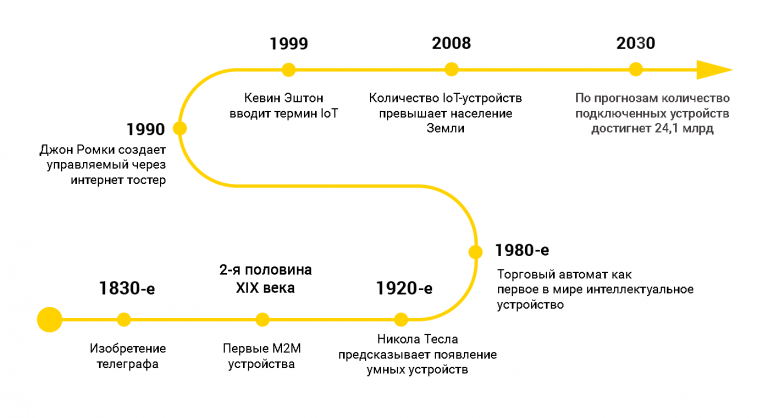We are not slaves, we are not slaves

“We are not slaves, we are not slaves” is a phrase from the first Soviet alphabet “Down with Illiteracy: A Primer for Adults” from 1919. This book has stimulated millions of people in our country to change their way of life, consciousness and even political system. A hundred years have passed. And it seems that at some fork in the road, society has turned left.
To whom strict control, and to whom a dear friend. “Big Brother”, frightening from time to time especially sensitive citizens, has long been registered in production, in retail and in class “A” offices. Global corporations use modern technologies to increase labor productivity. And we are talking not only about total surveillance of employees and control of people’s activity, but also about the analysis of their behavior. Why is this “insensitive business” relatively clear, but how long will people be willing to put up with it? About this in today’s article.
From plantation to …
At the beginning of the story of the life of American slaves on sugarcane plantations. As you know, at the dawn of the formation of the United States, slave labor was used in this country. The slaves were brought to plantations and shamelessly oppressed. But even there it could not do without its own “know-how”.
For example, how can one overseer be able to provide the productivity of tens or even hundreds of slaves? The solution was found to be outrageously simple. On the first day at the plantation, the newcomer was watched over by the manager. I drove it to the tail and mane. At the end of the day, the recruit’s productivity rate was recorded. In the following days of his “happy” life on the plantation, the poor fellow had to demonstrate no less labor feats. For any reduction in standards, the anti-Stakhanovite was threatened with all kinds of physical incentives and bonuses.
All for sale
A bad retailer that does not want to become Walmart, Amazon, Alibaba, etc. Examples of giant international businesses drive smaller players. Impressive financial statements with cosmic-order numbers eliminate any doubts about the integrity of these business models.
Many people want to work in such large and successful corporations. But the devil, as always, is in the details. The larger and geographically wider the retailer, the more contradictory the impressions of working in it among the employees of specific stores and warehouses – those who literally make these superheroes FT-500, Forbes and other iconic ratings with their own hands.
The race for efficiency and productivity of labor leads to the creation of systems of almost total control and the requirement of maximum efficiency from everyone, no matter what.
In the USSR, which branded the entire capitalist economy with inhumanity, there was such a propaganda cliché: Toyota is a sweat-wringing factory. Almost half a century has passed since its inception. And he just begs to be returned to circulation. However, as it is customary to say in the conditions of modern, so-called new ethics, not everything is so simple.
You can’t get sick
Three years ago, a report from the Bureau of Labor Conflict, A Better Balance, made a splash about the situation at Walmart. The interviewed employees of the world’s largest retailer said that they were terrified of getting sick, taking sick leave, and taking care of children.
One Walmart employee got sick three times during the winter and took several days off sick three times, after which he learned that he had lost the personal effectiveness points that he had heard about for the first time. He failed to find out the limit of points spent for the year: “Until they tell me everything about this point system, I will not go to sick leave. I have a feeling that the points will run out soon and I will simply be fired.“.
For lost 4 points, an employee who has been working in the company for less than six months is automatically dismissed. In Kentucky, a store employee had an appendicitis attack. He did not tell the manager about this and endured the pain, because he had already spent a lot of personal effectiveness points. But he was fired anyway.
The most striking quote from Walmart employees from the A Better Balance report:
“My daughter had an epileptic seizure. I took time off from work. I did not sleep all night, sitting next to my daughter. And in the morning I just fell asleep at work. The manager sent me to the hospital. The next day I was fired for absenteeism “(Ohio, store)
“I had an accident on my way to work. The ambulance took me to the hospital. It turned out to be a concussion and two broken ribs. I phoned the manager to warn of what had happened. He told me to go to work tomorrow. The next day I got fired“(Oklahoma, store).
In a Business Insider commentary on the report, a Walmart spokesperson then said, “Our company employs people who are paid in proportion to the hours worked. We simply cannot afford to have these employees be absent from the workplace for too long. However, there can be no speech impairments. We understand that unforeseen circumstances happen when an employee needs to leave, and we always meet halfway. This also applies to those who do not work piece-work, but in the state. Any employee can always count on vacation or sick leave. Moreover, the policy of our company involves the employment of people with disabilities.“.
Walmart employees even had a war with robots, in which they (the employees) won. This was reported by The Washington Post. The retailer has been trying to automate inventory processes for several years. As a result, the amount of functionality prescribed in the job descriptions decreased for living employees and their salaries were reduced.
But in fact, they served robots and even worked for them when customers did not want to communicate with artificial intelligence. The employees truly hated robots. As a result, Walmart curtailed robotization and said it had found better ways to track the number of items in stores.
To work in Mordor
Last fall, a humanitarian scandal shook the largest online retailer Amazon. The Open Markets Institute has released a report on how Amazon warehouses work. It was made based on information received from employees and from various media. The report presented the international business giant almost like Tolkien’s Mordor with its all-seeing eye.
Amazon warehouse employees only come to work with a transparent money bag and a bottle of water. After work – a mandatory inspection, in the queue for which you can lose an hour of personal time. This does not count as business hours.
There are cameras everywhere – officially to prevent theft. The staff believe it is for spying on them. You can only get together in small groups. The circle of communication of workers is regularly changed, transferring them from place to place, so that there are no constant contacts.
Amazon drivers cannot deviate from the set routes (all movements are tracked) and are obliged to deliver 999 orders out of 1000 on time. Delivered less – dismissal.
An electronic control system records every action of employees at every stage of work, measures the time. This data is automatically analyzed, compared with the regulations, and the system automatically sends out a performance assessment. Alerts about non-fulfillment of indicators and about dismissal also come automatically. The system does not take into account the physical condition of the employee. In general, many details from the life of Amazon employees can be seen in the Oscar-winning film “Land of the Nomads”.
More control, more pay
It would be strange not to recall the ongoing coronavirus pandemic and the massive exodus of staff around the world to remote locations. For millions of business owners, this migration has caused permanent stress. The fear of losing control of work processes is a popular phobia in the modern capitalist world. Which exit? That’s right, the implementation of software that increases control over employees.
The Russian company Stakhanovets, founded in 2009, specializes in the development of software solutions for employee monitoring. The Stakhanovets product allows company leaders to understand how effective, reliable and safe their employees are (description from the official website).
With the help of this software, you can control the delay of employees. The algorithm also knows how to analyze keyboard handwriting: if the author of a document writes with a bunch of typos, then the software assumes that he is, for example, intoxicated.
Another Yva program is the development of David Yan, the founder of the Russian company ABBYY. The program monitors the behavior of each employee by e-mail content, CRM, document management system. It also allows you to conduct employee surveys on a variety of topics – from the degree of job satisfaction to how a specialist sees his future in the company. Although, it should be noted that with all this, the software is relatively ethical – personal messengers are not monitored, publications in social networks and updates on LinkedIn are also not tracked.
There are also separate solutions for discipline control. For example, CrocoTime and Disciplina show how much time employees spend on work and how much time they spend on social media.
Mood color is different
So it turns out that turquoise companies are often idealized pink dreams of job seekers. They are usually talked about loudly, brightly and beautifully in books and at conferences. But how to equally motivate and not control tens and hundreds of thousands of employees across the country or even around the world? Turquoise does not usually scale as widely. It is often about compact businesses. Yes, real success is always a relationship between people. And relationships are based on trust.
But trust is always difficult and time-consuming. And business cannot wait. Therefore, if you go to work in a large company, then you accept its inevitable non-turquoise nature. Or is it a delusion? Let’s discuss in the comments the boundaries of personal and corporate in the workspace? Where does your Privacy begin and end?




